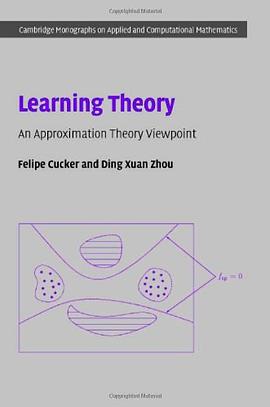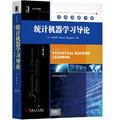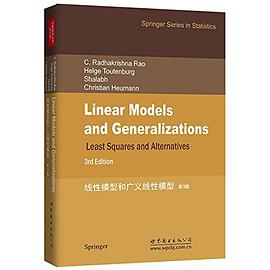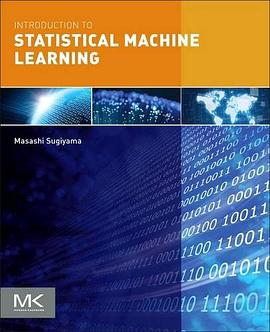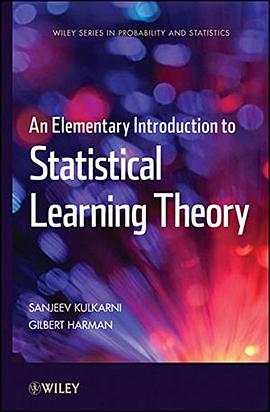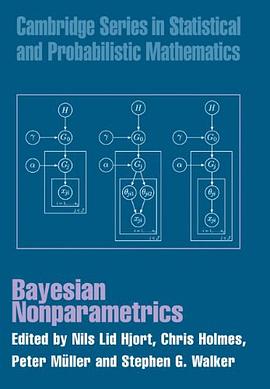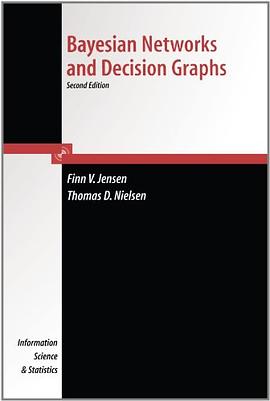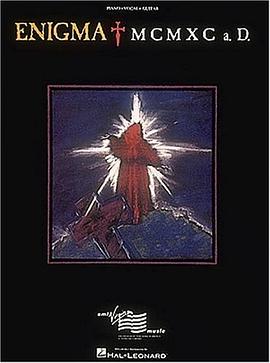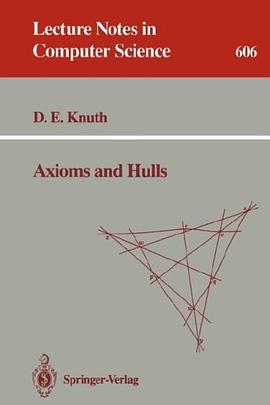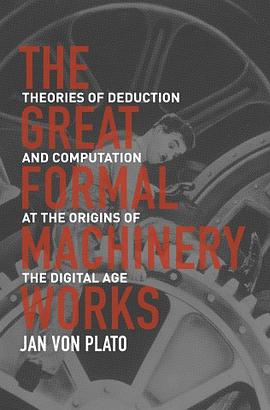

具体描述
The information age owes its existence to a little-known but crucial development, the theoretical study of logic and the foundations of mathematics. The Great Formal Machinery Works draws on original sources and rare archival materials to trace the history of the theories of deduction and computation that laid the logical foundations for the digital revolution.
Jan von Plato examines the contributions of figures such as Aristotle; the nineteenth-century German polymath Hermann Grassmann; George Boole, whose Boolean logic would prove essential to programming languages and computing; Ernst Schröder, best known for his work on algebraic logic; and Giuseppe Peano, cofounder of mathematical logic. Von Plato shows how the idea of a formal proof in mathematics emerged gradually in the second half of the nineteenth century, hand in hand with the notion of a formal process of computation. A turning point was reached by 1930, when Kurt Gödel conceived his celebrated incompleteness theorems. They were an enormous boost to the study of formal languages and computability, which were brought to perfection by the end of the 1930s with precise theories of formal languages and formal deduction and parallel theories of algorithmic computability. Von Plato describes how the first theoretical ideas of a computer soon emerged in the work of Alan Turing in 1936 and John von Neumann some years later.
Shedding new light on this crucial chapter in the history of science, The Great Formal Machinery Works is essential reading for students and researchers in logic, mathematics, and computer science.
作者简介
Jan von Plato is professor of philosophy at the University of Helsinki. His books include Elements of Logical Reasoning and Structural Proof Theory.
目录信息
Prologue: Logical Roots of the Digital Age 1
1. An Ancient Tradition 5
1.1. Reduction to the Evident 5
1.2. Aristotle's Deductive Logic 7
1.3. Infinity and Incommensurability 16
1.4. Deductive and Marginal Notions of Truth 21
2. The Emergence of Foundational Study 29
2.1. In Search of the Roots of Formal Computation 31
2.2. Grassmann's Formalization of Calculation 40
2.3. Peano: The Logic of Grassmann's Formal Proofs 50
2.4. Axiomatic Geometry 57
2.5. Real Numbers 69
3. The Algebraic Tradition of Logic 81
3.1. Boole's Logical Algebra 81
3.2. Schröder's Algebraic Logic 83
3.3. Skolem's Combinatorics of Deduction 86
4. Frege's Discovery of Formal Reasoning 94
4.1. A Formula Language of Pure Thinking 94
4.2. Inference to Generality 110
4.3. Equality and Extensionality 112
4.4. Frege's Successes and Failures 117
5. Russell: Adding Quantifiers to Peano's Logic 128
5.1. Axiomatic Logic 128
5.2. The Rediscovery of Frege's Generality 131
5.3. Russell's Failures 137
6. The Point of Constructivity 140
6.1. Skolem's Finitism 140
6.2. Stricter Than Skolem: Wittgenstein and His Students 151
6.3. The Point of Intuitionistic Geometry 167
6.4. Intuitionistic Logic in the 1920s 173
7. The Göttingers 185
7.1. Hilbert's Program and Its Programmers 185
7.2. Logic in Göttingen 191
7.3. The Situation in Foundational Research around 1930 210
8. Gödel's Theorem: An End and a Beginning 230
8.1. How Gödel Found His Theorem 230
8.2. Consequences of Gödel's Theorem 243
8.3. Two "Berliners" 248
9. The Perfection of Pure Logic 255
9.1. Natural Deduction 256
9.2. Sequent Calculus 286
9.3. Logical Calculi and Their Applications 303
10. The Problem of Consistency 318
10.1. What Does a Consistency Proof Prove? 319
10.2. Gentzen's Original Proof of Consistency 326
10.3. Bar Induction: A Hidden Element in the Consistency Proof 343
References 353
Index 373
· · · · · · (收起)
读后感
评分
评分
评分
评分
用户评价
相关图书
本站所有内容均为互联网搜索引擎提供的公开搜索信息,本站不存储任何数据与内容,任何内容与数据均与本站无关,如有需要请联系相关搜索引擎包括但不限于百度,google,bing,sogou 等
© 2026 book.wenda123.org All Rights Reserved. 图书目录大全 版权所有

